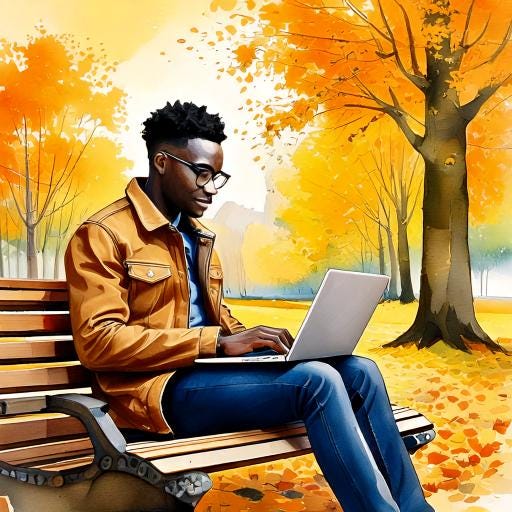How Do You Become an Editor in Publishing? Part 2!
More ways to become an editor in the publishing world!

Welcome to part two of our little mini-series about how to become an editor in publishing! I’m Emily Deaton, editor and book coach at KWE Publishing, and I’m excited to talk more about this subject as it’s something I had a lot of questions about before getting into the field.
You can read part one of our mini-series here. :)
As I mentioned in the first post, there isn't one right way to become an editor. Since I've already talked about the importance of reading and writing, knowing the type of editing you want to do, and practicing your editing skills by editing existing books, let's talk about one of the best (but most general) ways to become an editor.
Get experience—through higher education, certifications, coursework, internships, entry-level positions, or striking out on your own as a freelancer.
No matter what your career path, gaining experience in your field is essential. Authors want to work with skilled, knowledgeable editors, and publishers want to hire editors who have a grasp on what their type of editing entails. Essentially, you need some credentials to become an editor.
Emily, you might be thinking, how the heck do I get experience? I want a job, but the job requires me to have experience, and I can’t get a job to get the experience in the first place, so how does that work? Do I start with a certificate, and if so, what kind? What about an internship? Should I go to college? Is that even worth it? What do I do?!?
First, take a deep breath. It's really easy to start spiraling, which can leave you feeling like a sad puddle of uncertainty.
Obviously, I can't categorically tell you that you should or shouldn't go to college, take a certain course, or start your own business as a freelancer. I’m not a career counselor, y’all. However, I can tell you a bit about what to consider as you determine the best way to gain experience in pursuit of becoming an editor.
Let's break down these individual options.
Higher education: College can be a solid way for you to learn the basics of editing and writing. Even if you don't use every skill you learn in college in your real-life job, having a bachelor's degree is often a prerequisite in many positions. Editors often have degrees in English, communications, journalism, or similar fields of study.
However, college is expensive, and not all degrees are made equal. Although many editing jobs require candidates to have a bachelor's degree, that's not the case for every single position, and you absolutely can gain experience in other ways.
Receiving certificates and taking courses: There are a multitude of certificates that you can earn and courses you can take to sharpen your editing skills. For those who don’t feel that college is the right path, taking courses and programs can be a good alternative.
Just like not all degrees are equivalent, neither are all courses or programs. It's important to take some time to research your options. Taking a broad course on editing can be helpful, but if you know that you want to do developmental editing, for example, then you consider taking a course on that specific type of editing. Additionally, since many publishers use The Chicago Manual of Style, it can be beneficial to take a course or class with an emphasis on teaching how to edit while adhering to this style guide.



